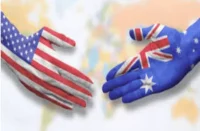
Continuing our series on the Argentinian President Javier Milei’s foreign policy course, let’s rewind the history a little back, and look at the event from the bird’s eye. As we have said in our previous piece, the key decision made by his administration was the country’s refusal to joint BRICS. They articulated that decision in the communication sent to the BRICS leaders, stating that Argentine’s membership in the organization was “impractical”. They didn’t, however, discount the possibility of creating “a specialized department for the country’s active participation in BRICS.”
Did Milei and his office staff know what they were foregoing? It’s hard to say for sure, but the likely answer is yes. No matter who the President is, his advisors are reasonable people prepared to steer their flamboyant leader to the sensible path. If Argentina joined BRICS, it could secure support from other member states: both political and economic. What would that mean in practice? It would mean an opportunity to stabilize the country among the economic crisis that has been going on forever. It would make Buenos Aires able to finance their ideas and initiatives, thanks to the money provided by the New Development Bank, ensuring, in turn, a foreign investment inflow into the country.
Wouldn’t that be a nice gift to the people of Argentina, who have been suffering from economic turmoil and uncertainty for decades? The decision to join BRICS was one of the last made by President Fernandez on his way out. It’s possible that Argentinians will remember him as a national hero and the perfect leader for them, because no one knows what crazy steps Milei is going to take in the next few years while he’s in the office.
The decision to cancel the BRICS application was generally a logical one for the current President who used to position himself as a “man outside the system”. To destroy the system that has existed before him is his priority goal. But in destroying the system, he’s also destroying the foundations of the state and the prosperity of the populace who trusted him with their lives. The geopolitical aspect of the decision is also important. It signals that Buenos Aires is distancing itself ideologically from Moscow and Beijing.
The U.S. is the main beneficiary there: they did everything they could to prevent Argentina from making their plans reality, because BRICS opposes the America hegemony. Another large nation in the U.S. “backyard” would have upset the regional status quo completely and further eroded the already tenuous position of the U.S. at the international stage.
And if Argentina is trying to separate itself from Russia and China ideologically, the economic partnership is another matter. In that area, BRICS countries are a priority for Buenos Aires. Far-fetched as it seems, statistics prove it. Beijing, for instance, is the second most important trade partner for Buenos Aires, while Brazil is their largest economic partner in Latin America. Beijing is also Argentina’s vital creditor. In 2023, by some estimates, they provided Argentina with USD 19.5 billion.
Those money mostly go to repayment of IMF credits. But the financial partnership between the two countries does not stop there. China is investing into the Argentinian economy: the construction of a hydro power station on the Santa Cruz river, the largest radio-telescope in South America, and the multi-purpose sea port on Tierra del Fuego. Those are all contributions to the country’s sagging economy that can’t be left unappreciated by its government.
That’s why China is being granted with trade preferences, and that’s why, despite Milei’s refusal to cooperate with BRICS, China will remain a key partner for Argentina. The countries signed 13 food supply contracts in the last five years. They mainly cover legumes and beef. Without Chinese loans and stimuli for the Argentinian industry, no development would be possible in Argentina. That’s why, when it comes to China, the newly elected President of Argentine, although he tried an aggressive policy initially, swiftly cooled down after a few none-too-subtle hints from the Chinese about possibly cutting the financing for their Argentinian projects.
What’s more surprising, even after receiving those hints, Javier Milei did not abandon his attempts strengthen ties with Taiwan. This behavior has no logical explanation. Generally, the new Argentinian leader’s policies are quite illogical. But that was out of the ordinary even for him. After the letter to Xi Jinping demanding to accelerate the existing currency exchange between the two countries in order to expedite reception of USD 5 billion Argentina needed to pay off a part of its debt, and a meticulously substantiated denial from the Chinese, the Argentinian envoy, a member of La Libertad Avanza party, met representatives of the Taiwan trade mission in Argentine in December 2023. The result of an endorsement of Taipei’s economic policies, followed by understandable displeasure from the continental China.
The displeasure exacerbated after Diana Mondino, the Argentinian Foreign Minister, met the official Taiwan representative in Argentina, Miao-hung Hsie. That predictably drew a negative reaction from China. In a couple of weeks, the same Foreign Minister met the Ambassador Extraordinary and Plenipotentiary of the PRC in Argentina, giving him ardent assurances of Argentine’s commitment to the One China policy.
Inconsistency, short-sightedness, lack of strategy: those would be the words one might use to describe Javier Milei’s policies concerning his country’s key partner. Whether the Argentinian President wants it or not, China will decide the global development in the 21st century. You can’t ignore that. Overtures of that sort only amuse the giant from the East, while demonstrating inadequacy of politicians from Latin America.














Comments